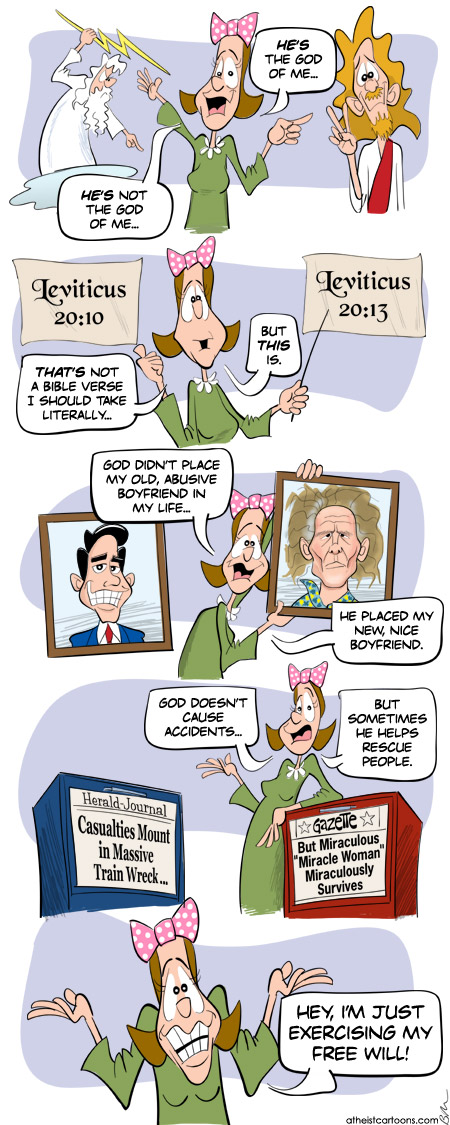| The religious hypochondriacs of Nairobi Posted: 22 Feb 2011 10:10 AM PST In In 2006, the African Population and Health Research Center began a 5-year study into the health of older people (50 years and up) living in two
Related articles: 1. The emotional problems of the slightly religious 2. Religion and suicide – a patchy global picture 3. Do secular see religious Jews as more trustworthy? |
| That explains it: 2/19/2011 Atheist Cartoon Posted: 22 Feb 2011 10:02 AM PST Courtesy AtheistCartoons.com. Related articles: 1. Somewhere fingers are flying: 2/6/2011 Atheist Cartoon 2. A day at the zoo: 2/9/2011 atheist cartoon 3. The Agnostic: 1/7/2011 Atheist Cartoon |
| Census Campaign – involvement of groups and supporters in local areas Posted: 22 Feb 2011 08:42 AM PST The next stages of the BHA’s Census Campaign are well under way, with activity leaving the office (and the internet!) and with people getting on and doing things in their local areas. We had so many requests from local groups for leaflets, that we printed over 60,000 of them, and we’re helping others design and print their own. Talks The BHA’s Naomi Phillips and Bob Churchill have already been busy visiting local groups around the country, giving talks on the background to the Census Campaign, where the campaign is at now, and why it is so important for any one who is not religious to say so on the form by ticking ‘No Religion’ on March 27th. You don’t have to be affiliated to the BHA to request a talk – we are really pleased to come to groups such as Skeptics in the Pub or other meetings where local people get together and want to take action! Please get in touch with Lizzie, Census Campaign co-ordinator, if you would like more information. More ways to get involved and support the Census Campaign There are so many other ways to get involved: Visit the Census Campaign website. Sign up to Facebook and follow the campaign on Twitter. Read the blog. Importantly, make sure you tell us what activities you are doing so that we can report on them online! Don’t forget to tell everyone you know! The success of this campaign really relies on word-of-mouth. Related articles: 1. Launching ‘The Census Campaign’: “If you’re not religious, for God’s sake say so!” 2. Secular groups protest ‘Godly’ oath on behalf of census workers 3. FFRF debuts ‘Out of the Closet/Meet Your Friendly Neighborhood Atheist/Agnostic’ campaign |
Pages
Sri Lanka's News Portal for Secularism, Humanism, Science and Reason
Wednesday, February 23, 2011
The religious hypochondriacs of Nairobi
Subscribe to:
Post Comments (Atom)



No comments:
Post a Comment